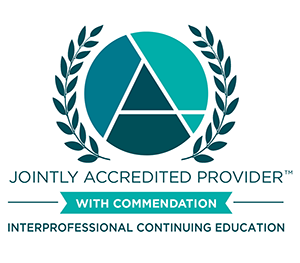- Riley Caylor
- ANDREA MILLER
Series Overview
Pediatric and Adult Congenital (PAC) Case Conference will explore congenital heart disease (CHD) along with treatment and management options. Consideration will be given to medical, surgical and non-surgical treatments for patients with Congenital Heart Disease and their overall effect on development, morbidity and mortality. Learners will utilize critical thinking and technical skills to determine optimal care of patients with CHD. Through participation learners will come to better understand barriers to health care that CHD patient's may face.
Intended Audience
MD/DO, RN, APRN, Cardiovascular Techs, Fellows, and Students.
Planning Committee
| Luke Lamers, MD, Chair | Riley Fink, Coordinator | Sheri Goar, RN | Cara Miller, CVT |
Accreditation
Accreditation Statement
 | In support of improving patient care, the University of Wisconsin–Madison ICEP is jointly accredited by the Accreditation Council for Continuing Medical Education (ACCME), the Accreditation Council for Pharmacy Education (ACPE), and the American Nurses Credentialing Center (ANCC) to provide continuing education for the healthcare team. |
Credit Designation Statements
American Medical Association (AMA) |
The University of Wisconsin–Madison ICEP designates this live activity for a maximum of 1 AMA PRA Category 1 Credit™. Physicians should claim only the credit commensurate with the extent of their participation in the activity. |
American Nurses Credentialing Center (ANCC) |
The University of Wisconsin–Madison ICEP designates this live activity for a maximum of 1 ANCC contact hour. ANCC pharmacotherapeutic contact hours will be calculated and awarded as appropriate per session to meet the needs of advanced practice nurses. |
Continuing Education Units |
The University of Wisconsin–Madison ICEP, as a member of the University Professional & Continuing Education Association (UPCEA), authorizes this program for 0.1 continuing education units (CEUs) or 1 hour. |
POLICY ON FACULTY AND SPONSOR DISCLOSURE
It is the policy of the University of Wisconsin–Madison Interprofessional Continuing Education Partnership (ICEP) to identify, mitigate and disclose all relevant financial relationships with ineligible companies* held by the speakers/presenters, authors, planners, and other persons who may influence content of this accredited continuing education (CE). In addition, speakers, presenters and authors must disclose any planned discussion of unlabeled/unapproved uses of drugs or devices during their presentation. For this accredited continuing education activity, all relevant financial relationships have been mitigated and detailed disclosures are listed below.
* Ineligible companies are those whose primary business is producing, marketing, selling, re-selling, or distributing healthcare products used by or on patients. The ACCME does not consider providers of clinical service directly to patients to be commercial interests.
Detailed disclosures will be available prior to the start of the activity.
Disclosures for Planning Committee
COMPETENCIES
ACGME/NURSING
Medical Knowledge
Practice-Based Learning and Improvement
NAM/NURSING COMPETENCIES
Employ Evidence-Based Practice
Apply Quality Improvement
INTERPROFESSIONAL EDUCATION COLLABORATIVE COMPETENCIES
Interprofessional Communication
Teams and Teamwork
DIVERSITY, EQUITY, AND INCLUSION COMPETENCIES
Engage in Self-Reflection
Address Health Disparities
Value Diversity in the Clinical Encounter
ADDITIONAL ACTIVITY GOALS
| JAC 23 |
IP — COMPETENCE/PERFORMANCE
As a result of participation in this educational series, members of the healthcare team will:
- Use appropriate surgical and non-surgical techniques for treating patients with congenital heart disease
- Make better clinical decisions based on improved understanding of congenital heart anatomy and its effect on a patient's physiology and development
- Improve communication with other members of the healthcare team providing care to patients with congenital heart disease
- Plan strategies to decrease disparities in the healthcare system that affect underrepresented groups who require treatment for congenital heart disease

 Facebook
Facebook X
X LinkedIn
LinkedIn Forward
Forward